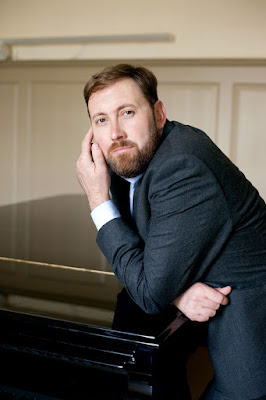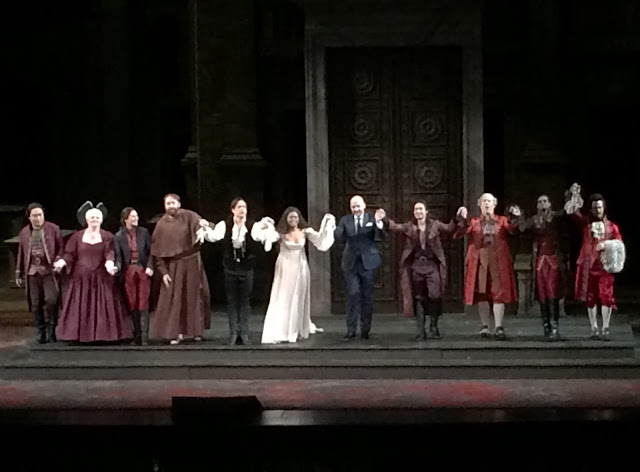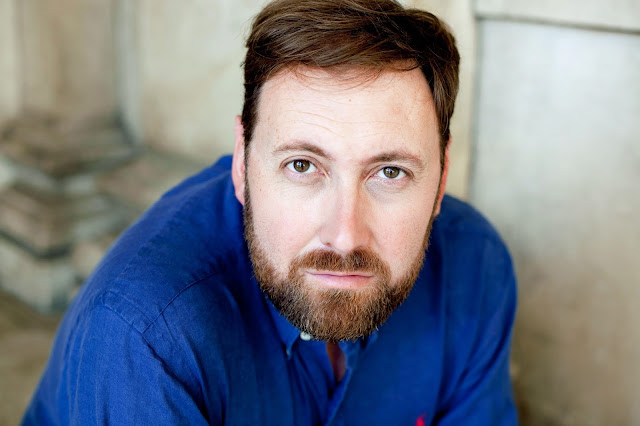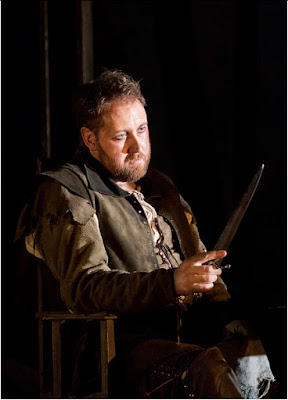 |
| Matthew Rose as Baron Ochs and Renee Fleming as the Marschallin in Der Rosenkavalier Photo: Royal Opera House / Catherine Ashmore (via) |
If you had asked my dear mother what she would have wanted to be, more than anything in the world, she would have quickly responded, without hesitation: a singer.
Having been a talented child singer and never developed (or rather, had the opportunity to develop) her gift, she turned to the administrative and financial worlds (with much success), but her intense love of singing — and singers — never abated, and expressed itself throughout her life. Introduced to opera as a teenager (via CBC Radio broadcasts, as well as vinyl recordings), she balanced her passion for one art form while enjoying others, including rock and roll and jazz — though it must quickly be noted here that all the artists she loved in those genres (Elvis Presley, Roy Orbison, Dean Martin) had equally beautiful voices. Things like fach, squillo, and vibrato were foreign concepts to her, and though she was always open to learning new things, she also felt that too much critical listening would hinder her pure appreciation of the art form; I confess to being frequently exasperated by this, my line of thinking being that one’s enjoyment is only deepened through such detailed knowledge, but… there is, in contemplating some of our past opera-going experiences, something really moving and pure about her direct experience of wonder and joy in listening to music, and voices in particular.
 |
| Photo: Lena Kern |
Listening to bass Matthew Rose, I’m brought to that same place of pure enjoyment; like any singer, in any genre but most especially in opera, he’s spent countless hours practising and perfecting his craft, and yet, so often I’ve found, when he opens his mouth… pure joy comes out. The word in German, “freude,” referenced (and conjured) so much throughout the choral section of Beethoven’s Ninth Symphony, and it’s a quality I think that largely defines Matthew Rose’s approach to his craft, as well as to my own experience of it. A native of Brighton, Matthew began his career studying at the Curtis Institute of Music in Philadelphia, and from there, became a member of the Young Artist Programme at the Royal Opera House, Covent Garden. In 2006 he made his debut as Bottom in Benjamin Britten’s A Midsummer Night’s Dream, in what became an award-winning (and much-vaunted, oft-repeated) performance. He has a wide catalogue of roles he’s sung, from King Marke (in Wagner’s Tristan und Isolde) to the title character in Le nozze di Figaro (The Marriage of Figaro) and the villainous Callistene in Donizetti’s rarely-performed Poliuto. As you might expect, Matthew’s worked with a range of great conductors, including Antonio Pappano, Gustavo Dudamel, a trio of Sirs (that would be Andrew Davis, Colin Davis, and Carles Mackerras), and future Met Opera Music Director Yannick Nézet-Seguin, and won a Grammy Award for Best Opera Recording for Britten’s Billy Budd, in which he sang the role of the dutiful (if doubtful) officer Ratcliffe.
I had the privilege of seeing Matthew Rose perform live last fall at the Metropolitan Opera, where he was appearing in the revival of Michael Grandage’s 2011 production of Don Giovanni, as an exasperated Leporello to Ildar Abdrazakov’s confident, eyebrow-waggling Don. This was a lively, vivid interpretation, not at all cliched or cartoonish, but sad, exasperated, hopeful and cynical at once, his approach to the famous catalogue aria a scintillating mix of musicality and theatricality, and his chemistry with fellow bass Abdrazakov entirely charismatic. Matthew’s Leporello was warmly, recognizably human, truly touching. Those in Dresden are wise to run to the Semperoper soon, because he’ll be singing the role again for two dates in April.
 |
| Romeo et Juliette bows. (Photo: mine; please do not reproduce without permission) |
Having recently seen him perform live yet again at the Met as Frère Laurent (Friar Lawrence) in Gounod’s Romeo et Juliette, Rose delivered a mix of authority and heartfelt gentility, his strong voice and clear diction embracing the complex demands of the Shakespearean-based work. One got the feeling watching him that the character was rooting for the put-upon lovers wildly inwardly, while going through the motions of his station outwardly. New York also saw Matthew give a recital at the Weill Recital Hall at Carnegie Hall, which featured Matthew briefly reprising the role of the boorish Baron Ochs (from Strauss’s Der Rosenkavalier) as an encore, a role he’d performed onstage opposite superstar soprano Renee Fleming at Covent Garden as part of the ROH’s Winter 2016/017 season.
On Friday (March 31st) and Saturday (April 1st), he’ll be performing with the Deutsches Symphonie Orchester Berlin, in a delicious-looking program that includes works by Strauss, Beethoven, and Schubert. Even more time will be spent in Europe this coming summer, however, when Matthew will be leading a course in singing at the Scuola di belcanto in Urbania, Italy. What, teaching? Italy?! Why now? Well… why not?
 |
| Photo: Scuola di belcanto (via) |
How did you become involved with the Scuola di belcanto?
Twenty years ago, as a 19 year-old who didn’t know much either about singing or what I wanted to do in life, I attended a month-long course in Urbania, in the Marche region of Italy. The course was at a language school, Centro Studi Italiani and there was an opera singing part of the course with students and faculty from Juilliard, Curtis etc. It was here that my path to becoming an opera singer was cemented; I was first exposed to what real singing was, and met some very important people in my life, including Mr. Mikael Eliasen, who runs the voice department at Curtis. I ended up, very luckily, studying at Curtis and becoming a professional singer, something that would not have happened, I’m sure, had I not done this course.
Last year, Centro Studi Italiani asked me if I would consider doing a course there. About three hours later I had worked something out and the people that I thought would make a great team and now it looks like we are all set for the first one this summer.
Who is this course for, specifically?
It’s for people who want to further their singing — we have talented students coming, and some professional singers who want to add tools to their armour. This is a business where you can always improve, and I’m glad there is this range of people attending.
Why bel canto? Why Italy?
I really believe that to be a great opera singer one has to master several very important facets; vocal technique, musical excellence, dramatic intention and language. Italian, being the mother language of opera and from which all vocal techniques are established, is the language all singers should have at least a basic understanding of. So we are doing this course, where participants spend a large amount of time learning Italian and then are coached and taught the other aspects. For the first week I want to do evening sessions, where we do singing and talk about combining these four aspects in the best possible way, without neglecting anything that is wholly necessary. So bel canto in this instance isn’t necessarily the act of singing a specific kind of repertoire, but becoming a complete singer from which great art and music can flow.
How did you go about structuring the program?
This was quite simple: Italian lessons in the mornings, coaching and singing lessons in the afternoons, seminars in the evening for the first week, then coachings and preparation for end of course concerts for the second week.
 |
| Photo: Lena Kern |
What’s the significance of having the involvement of Rosenblatt Recitals?
Ian Rosenblatt is an amazing man who serves our industry and art form in London in an incredible way. He puts on concerts in London to highlight a certain type of singer who have a great mastery of vocal technique and other performance attributes, mostly coming from the Italian bel canto school. I thought that this initiative would be something that he might be interested in and he has very graciously and generously given a very significant amount of money to make the musical side of the course possible. In fact when the participants come, they will only be paying towards the Italian school and accommodation.
First of all, Joan Patenaude Yarnell, a great singing teacher from New York, and the person who led the course in 1997 when I first came had to be involved. She understands the physicality and internalization of singing better than any one I know. I wanted a stage director and great musical staff, and we have the best in Louisa Muller, a staff director at the Met, Eric Melear from the Wiener Staatsoper, and David Syrus, who is very soon to be stepping down as Head of Music at Royal Opera House after forty years. They’re all professionals of the highest caliber and experience who will get the best and most out of everyone attending.
 |
| Matthew Rose as Sparafucile in Rigoletto © Johan Persson/ROH 2012 |
How much do you think participants will pick up and absorb within two weeks?
How does teaching influence your work as a performer?
I do believe I have learnt so much from teaching and coaching the last few years. I have always wanted to help young singers, in the ways I was so fortunate to be helped by a whole swath of amazing people all through my journey as a singer. I really want to help the next generations of singer be the best they possibly can be for our wonderful art form to flourish. With the best possible things happening onstage, there should be no doubt why these amazing pieces should not exist and flourish, always.
